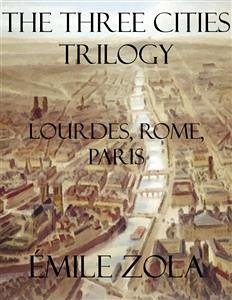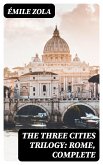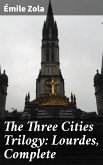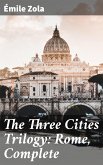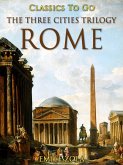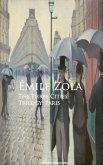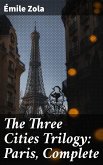Trilogy of the Three Cities (1894-1898), which he began with "Lourdes" and continued with "Rome" and finished with "Paris"; and thus the adventures and experiences of Abbe Pierre Froment, the doubting Catholic priest who failed to find faith at the miraculous grotto by the Cave, and hope amidst the crumbling theocracy of the Vatican, are here brought to what, from M. Zola's point of view, is their logical conclusion. From the first pages of "Lourdes," many readers will have divined that Abbe Froment was bound to finish as he does, for, frankly, no other finish was possible from a writer of M. Zola's opinions. Taking the Trilogy as a whole, one will find that it is essentially symbolical. Abbe Froment is Man, and his struggles are the struggles between Religion, as personified by the Roman Catholic Church, on the one hand, and Reason and Life on the other. In the Abbe's case the victory ultimately rests with the latter. Émile Zola (1840-1902) was a French writer, the most well-known practitioner of the literary school of naturalism and an important contributor to the development of theatrical naturalism. He was a major figure in the political liberalization of France and in the exoneration of the falsely accused and convicted army officer Alfred Dreyfus, which is encapsulated in the renowned newspaper headline J'accuse. Zola was nominated for the first and second Nobel Prize in Literature in 1901 and 1902. This edition was translated by Ernest Alfred Vizetelly (1853-1922), an English journalist and author.
Dieser Download kann aus rechtlichen Gründen nur mit Rechnungsadresse in A, B, BG, CY, CZ, D, DK, EW, E, FIN, F, GR, HR, H, IRL, I, LT, L, LR, M, NL, PL, P, R, S, SLO, SK ausgeliefert werden.

